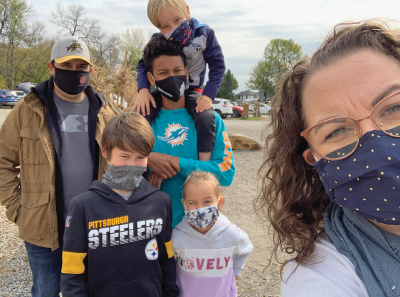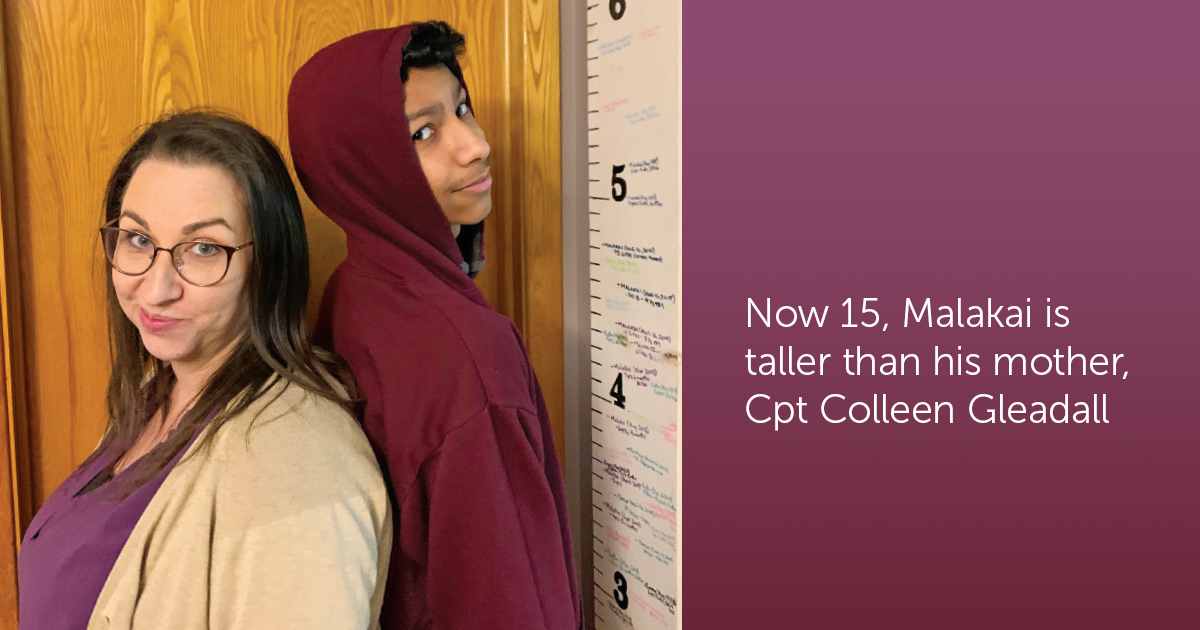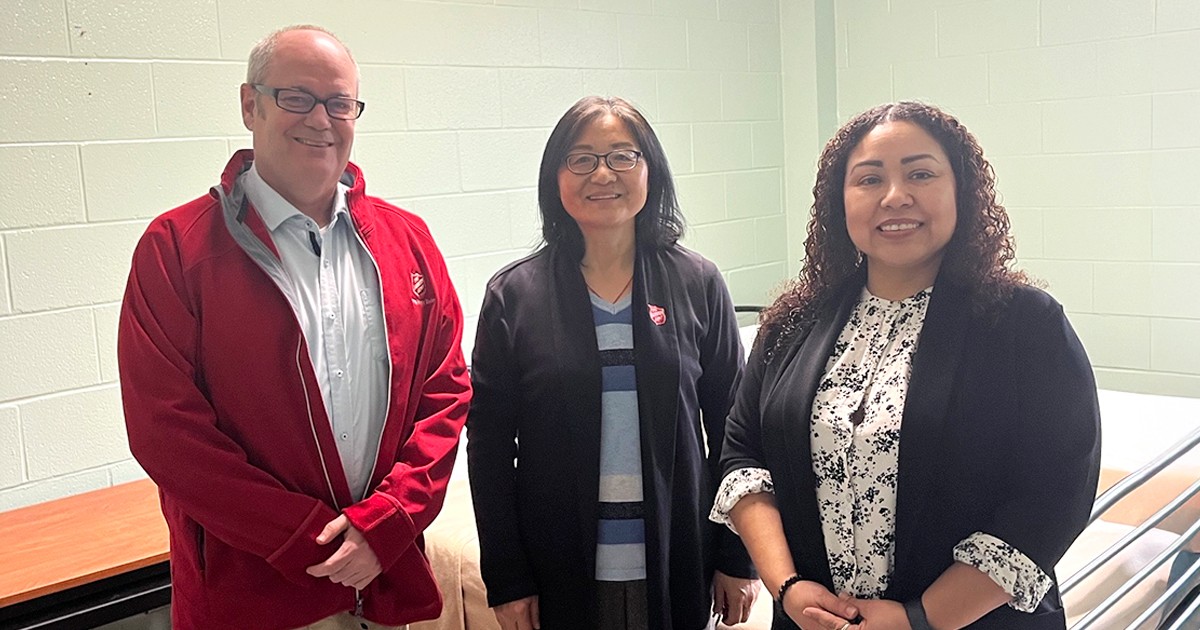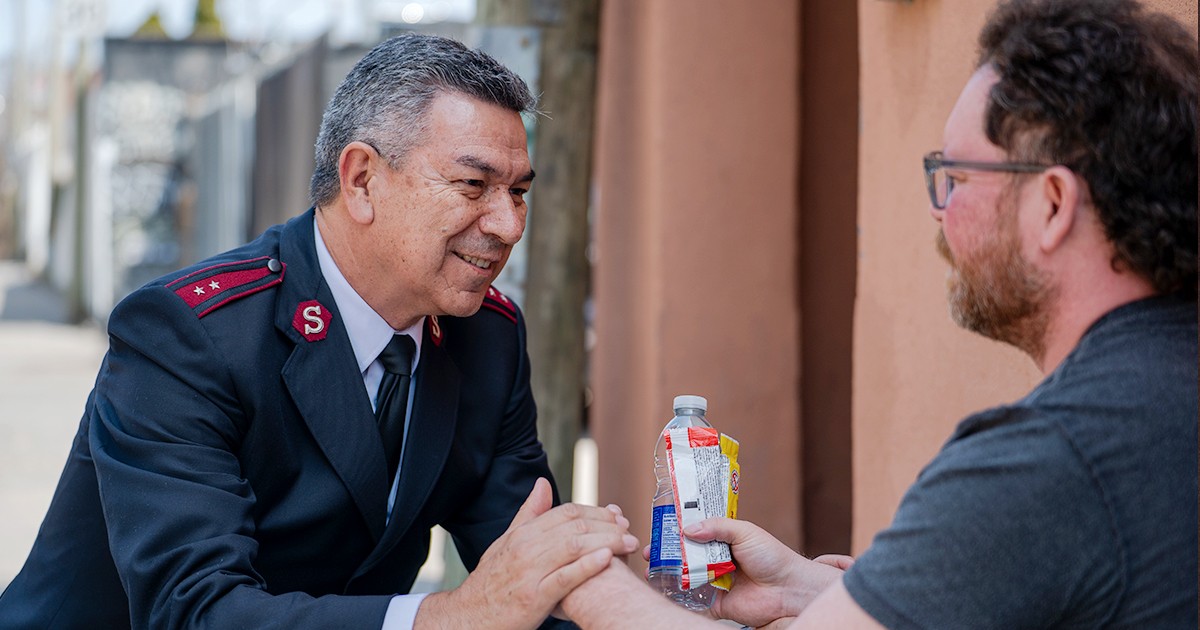I am a white woman. I was raised by two white parents. I fell in love with and married a white man. I am a mother to three white children. My Black son, my first-born, is being raised by white parents.
I was a 21-year-old single woman when the double lines appeared on the pregnancy test. It was unplanned and unexpected but, after the shock wore off, I settled into my new reality. My growing belly and tired feet were reminders of the baby that grew in my womb, who became part of who I am.
I considered our unique reality—a Black son growing up with a white mom—but that issue seemed less pressing than the immediate concerns that filled my days. Would I be enough? Would I have enough to give him? How would the church react? Figuring out the intricacies of the racial divide could wait.
Growing Up
Malakai was 9 1/2 months old when he took his first steps. This was around the first time a person questioned me and Justin, then my fiancé, about who his “real” parents were.
By the time he was two, we had managed—with the help of mini hockey sticks—to teach Malakai every single one of the 30 NHL hockey teams based on their logo. Around this time, a lovely Christian woman commented that I was lucky Justin agreed to raise a Black child with me.
Malakai was five when he received a certificate for leadership, Bible knowledge and proficiency in music from his kindergarten teacher. That same year, a Christian man told us that all Black children were poorly behaved.
He was almost nine when he scored his first goal in hockey and celebrated with his excited teammates. A year later, he was called the N-word for the first time by an 11-year-old child in our neighbourhood.
Malakai was 14 years old on the day he finally discovered he was half an inch taller than his mother. On that day, the world witnessed the murder of George Floyd.
The Day It All Changed

Malakai, Emery, Laila and Cpt Colleen
May 26, 2020, started in a similar way to other days since the pandemic began. Prior to the lockdown, our mornings consisted of a dash to get all the kids to bus stops and school drop-offs. Now, we navigated the chaotic puzzle of a family Zoom schedule. Four active, feisty kids with more energy to burn than the space in our house seemed to allow kept our days full.
As was often the case during those early days of the pandemic, I stole a few moments away from the chaos to catch up on the daily COVID-19 numbers, the news and, of course, social media. Out of sheer habit I opened Facebook and was confronted with post after post of the exact same story: a white man with his knee on the back of the neck of a terrified Black man. I watched a few moments of the video in horror, but before I had time to digest what I had watched, my kids were hungry once again. (“I’m hungry” had become my kids’ quarantine motto.) I tucked my phone away and dashed quickly to the kitchen to reheat leftovers from the night before.
I watched my kids interact with one another and felt an overwhelming gratitude for those moments when they were oblivious to the horrors of the world, all of which were captured on video. I prayed a futile prayer that God would help us shield them from the cruelty of this world. I prayed that we would be able to shelter them from the evil of racism that lurks, not in the shadows, but on street corners in broad daylight with witnesses gathered.
My gaze shifted to Malakai. He regularly checked his height on the measuring board in our dining room and was anxious for the day he would surpass my five-foot-five-inch frame. He was getting close. I watched as he stood up straight, back against the wall, with a smile on his face and a ruler at the top of his head. Five feet 5 1/2 inches tall.
It didn’t hit me right away and, for that, I am grateful. Those precious moments allowed me to laugh with my son, for him to jokingly “look down” on me, to watch him stand tall. I was unaware of the thoughts that were waiting to assault my mind and linger indefinitely. I snuck away behind closed doors as Malakai instinctively helped his younger siblings tidy after lunch. All of those feelings needed space to overflow.
My eight-pound baby boy had been replaced with a 100-pound, strong-willed teenager. The squishy cheeks and round belly that I freely kissed as an infant were gone, replaced by broad shoulders and defined muscles, and a teen who offers affection on his own terms. The 21-inch-long newborn seemed to tower over me at five feet 5 1/2 inches. He looked more like a man than ever before, a Black man.
A Need for Change
I think about those instances when racism snuck into Malakai’s life—the side glances, unfair assumptions and uncomfortable questions. I think about how the actions of others affected him. Most of all, I think about my reaction to those instances and how that was perceived by him. The moments I went along to get along. The moments I betrayed my beautiful boy with silence. The moments I allowed hateful words to linger in the air uncontested, like a thick smog defiling those it touches.
On May 26, 2020, I developed an urgency regarding racial injustice. Systemic racism that must be addressed. Societal practices that need to be reevaluated. Eyes that need to be opened. I began purposefully seeking out ways to broaden my understanding of racial injustice and equality. I started reading books and watching movies on the subject. I diversified my follows on social media and my music playlists. All the while pointing outward: They need to do better. They need to fix the problem. They need to stop being racist.
Austin Channing Brown’s book I’m Still Here shares her experiences of being Black while navigating a world dominated by whiteness—in school, the workplace and even in church. Her words were both heavy and life-giving. When I read her words, “Sadly, most white people are more worried about being called racist than about whether or not their actions are in fact racist or harmful,” it was a gut-punch.
Listening and Learning
God used those words to speak truth into my life, highlighting ways in which my words, actions, beliefs and biases were at best unhelpful and untrue, and at worst harmful and racist. I was no longer willing to hide behind the white defensive cry of “I’m not racist.” Rather, I would do the work needed to ensure that statement matches my actions.
It is an ongoing process and a commitment to dismantling racism in my own life. It is deep-rooted. The process is heavy, humbling and painful. It is timeconsuming, necessary and messy. It is powerful and, above all, it is holy.
I put it off for a long time, thinking I had it all figured out. For me, it took a specific reason on a specific day for God to show me the work that still needed to be done in my own life. I wish it didn’t take that long. I wish I had seen others hurting in the world and that would have been enough.
Now, I hope others are evaluating where they are on that journey of dismantling racism. I hope others have also been given a reason to start, to keep going or to pick it up again. I hope that this world will be better for all our sons and daughters. I hope that white people will no longer have to say “I’m not racist” because our actions will show it.
Malakai is 15 years old and just under six feet tall. He is learning to love his long, curly pandemic hair but would much rather have the sleek look of a fresh fade. He loves to play hockey and football, which feeds his competitive nature. He is an attentive, loving big brother and an incredibly helpful son. He enjoys video games with friends and board games with family. He brings spiders outside rather than killing them. He is a kind, fun-loving, compassionate child of God.
He is my reason to dismantle racism in my life. Perhaps he can be your reason, as well.
Captain Colleen Gleadall is the corps officer at Montreal Citadel.
This story is from:










We have a wonderful Grandson Dante,we raised him,loved him,supported him.He is also Black.From day one he won our hearts,and the hearts of many People.He was singing at age 3,Gospel Singer At age 7,recorded his first album,age 9 his 2nd album. Basketball Player.Field and Track. Plays Drums,School Bands and Church,Cornet.More importantly he is our Grandson.As well we also have another Grandson 27 Josh,a Granddaughter Naomi 23.They Both live in Toronto.We are so proud of them. Lorne and Myself are retired/active Corps Officers. Dante is 24, Our Family is complete with a Grandson Ethan 17 and Charlotte 8 Both white.All are so loveable. God Blessed us with five wonderful Grandchildren. Stand Strong.Thank You for sharing your Story.May God Bless You Both and your Precious Family.